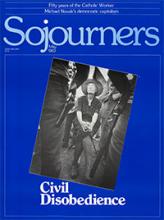Warning!
On May 30, two persons were observed trying to look over the wall surrounding the concentration camp in Dachau. They were of course immediately arrested. They explained that they had been curious to see what the camp looked like inside. In order to give the opportunity to satisfy their curiosity they were detained overnight. It is hoped that their curiosity has now been satisfied in spite of this unforeseen measure.
We wish to still the curiosity of all those who might ignore the warning by informing them that in the future they will be given the opportunity of studying the camp from inside for longer than just one night.
All inquisitive persons are hereby warned once more.
In charge of the Supreme S.A. Command
Special Commissioner Friedriche
published in Dachau
June 2, 1933
Read the Full Article

